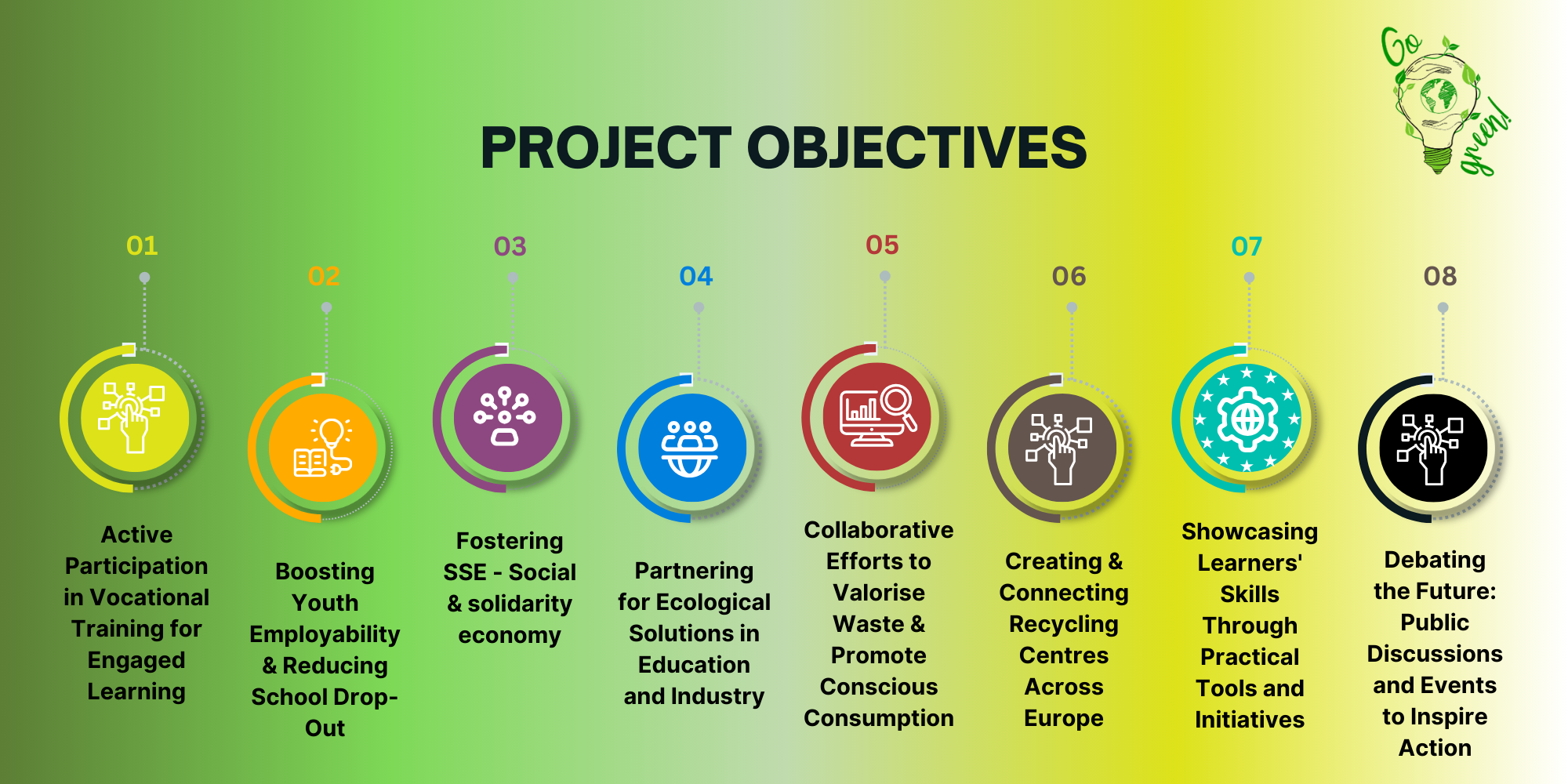Ecology in the Professional Learning Cycle
Supporting Learners with Innovative Approaches
The Lycée Jean Moulin, in collaboration with RESIA as the project leader, has developed a dynamic project to support students facing academic, family, social, and economic difficulties.
These challenges, particularly heightened during the 2020/2021 school year due to the COVID-19 pandemic, have led to an increase in school dropouts and difficulties in keeping up with classes.
To address this, the project adopts a hands-on, project-based learning approach that links theoretical education with practical experiences, making learning more engaging and relevant.
International Partnerships for Shared Objectives
Working together with RESIA, Lycée Jean Moulin established partnerships with four high schools across Europe and North Africa:
- Zespol Szkol w Pasleku High School (Poland) aligns its educational project with our objectives.
- ESWIP Association (Poland) has experience in ERASMUS projects and focuses on social economy and environmental topics.
- Noi@Europe (Italy) coordinates youth volunteer initiatives under the European Solidarity Corps and shares common practices with RESIA.
- M.B. Mangino High School (Italy) works on environmental issues and partners with Noi@Europe.
- El Manara High School (Tunisia) collaborates closely with the city of Gabès on decentralised cooperation projects, including eco-neighbourhood development.
- Association Franco-Polonaise Cotes d’Armor - Warmie et Mazurie (ACAWM) (France) Franco-Polish Association experienced in ERASMUS +
- Organisation Volonté et Citoyenneté OVC) association in Gabès, Tunisia
Engaging Target Audiences
The target group includes students from four high schools across Poland, Italy, and Tunisia. Each school selected participants based on educational interests and school schedules. This project aims to involve students with profiles that benefit from project-based learning and cross-cultural exchanges.
Addressing Environmental Challenges
All partner schools are located in coastal cities, with shared concerns about pollution affecting their unique ecosystems. By working together, the participants will explore ecological issues, share knowledge, and develop solutions tailored to their regions. This project addresses the common challenges identified by the partners and meets the educational needs of the students involved.
A Shared Vision for the Future
By engaging young learners, the project will foster a collaborative environment focused on sustainability, international solidarity, and practical solutions to local environmental problems. Through this initiative, we aim to provide students with a meaningful learning experience that extends beyond the classroom and prepares them to tackle the challenges of tomorrow.
Project Objectives
- Involve learners in a project where they actively participate in their vocational training, making the course more engaging. Develop young people's citizenship, openness to the European Union, international affairs, and diverse cultures.
- Increase youth employability and combat school drop-out.
- Focus on themes such as the social and solidarity economy (SSE), sustainable development, international solidarity, interculturality, and mobility opportunities for learners.
- Leverage the network of project partners to highlight ecological solutions within their structures.
- Collaboratively find solutions to valorize waste and promote conscious consumption.
- Establish a recycling centre and exchange practices and experiences with similar centres across the EU and beyond.
- Use tools that showcase the learners' growing skills.
- Create spaces for debate on the future, organize dissemination events open to youth and the wider public to share the project’s progress, and inspire action.


